November Brexit deal is doable - Barnierpublished at 21:09 BST 10 September 2018
The EU negotiator says a deal on the UK's withdrawal could be agreed if negotiators are "realistic".
Read MoreInternational Trade Questions at start of the day
Questions next to Women and Equalities ministerial team
Urgent question on Bedford prison
Business statement outlines what's coming up in the Commons
Statement on scallop fishing from Fisheries Minister George Eustice
Debate on proxy voting
Peers question ministers from 11am
Sophie Morris, Robbie Hawkins and Julia Butler
The EU negotiator says a deal on the UK's withdrawal could be agreed if negotiators are "realistic".
Read MoreBBC parliamentary correspondent Susan Hulme and politics researcher Daniel Kraemer look ahead to tomorrow at Westminster.
Legislating for the EU withdrawal agreement
 House of Commons
House of Commons
Parliament
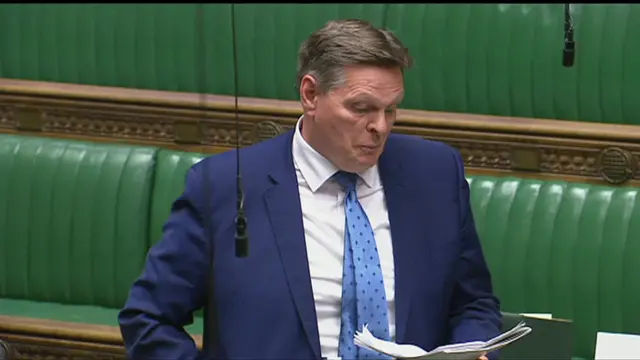 Image source, HoC
Image source, HoCConservative MP Stephen Kerr says he's always been clear that he voted to leave the EU despite 67% of his constituency, Stirling, voting to remain.
He says the Conservative party honours and respects the decision of the referendum, and he believes it is his responsibility for the people of Stirling to make sure this is the best possible result for the people of Britain.
Mr Kerr says he thinks the British public have become fatigued by the squabbling over Brexit, and that they want MPs to pull together to deliver the best deal.
Reinforcing Rachel Maclean's admiration for Theresa May, Mr Kerr says the prime minister is doing everything in her power to deliver a Brexit arrangement which fulfills the instructions of the British people that were delivered at the time of the referendum.
Mr Kerr says the UK is hindering ourselves as a country by expressing self-doubt as it makes us look weak. He says if the government gets this wrong, it will haunt a generation.
"Europe does want to do a deal with us, the concept of a no deal from their perspective is bad. There is a mutual interest here, a win win possibility. It's time for our government to play them, and play them well."
Legislating for the EU withdrawal agreement debate
 House of Commons
House of Commons
Parliament
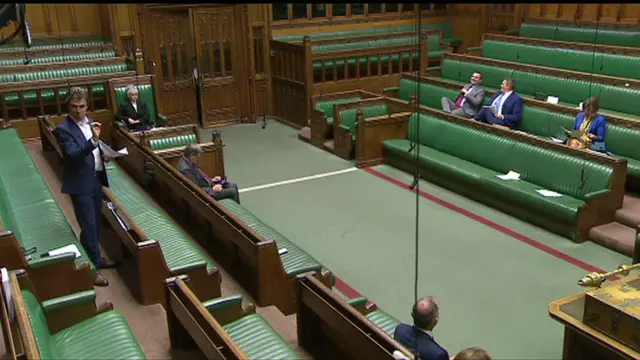 Image source, HoC
Image source, HoCThe debate on Brexit is one that should have been had two years ago before the referendum, Lib Dem Tom Brake says.
He asks whether the government considers Article 50 revocable or not (not just whether they would consider revoking it), as that may impact the path the UK goes down.
"I have a nasty feeling we'll have all this debate about a withdrawal agreement that won't be applied," he says.
He hopes the government will not just settle for "a fudge", warning that "what we do not want is a vague undertaking which just gets us out of the European Union", leaving future governments to clear up the mess.
Commons library tweets
Allow X content?
This article contains content provided by X. We ask for your permission before anything is loaded, as they may be using cookies and other technologies. You may want to read X’s cookie policy, external and privacy policy, external before accepting. To view this content choose ‘accept and continue’.
Sterling rose more than 1% after the EU's chief negotiator said the prospect of a deal was "realistic".
Read MoreLegislating for the EU withdrawal agreement
 House of Commons
House of Commons
Parliament
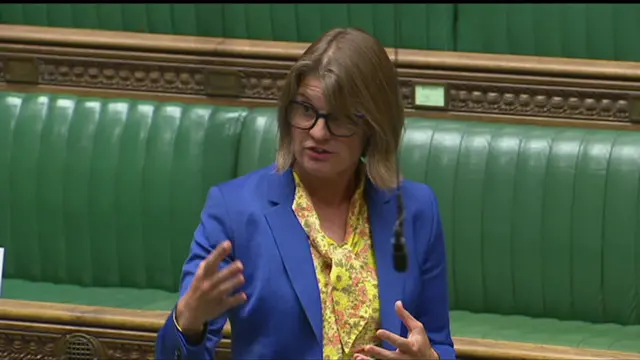 Image source, HoC
Image source, HoCConservative MP Rachel Maclean says her constituents voted to leave because they wanted to take back control of their money, their borders and their laws.
Ms Maclean says it all comes back to sovereignty and that she welcomes the withdrawal agreement which highlights this.
"We have all been calling for sovereignty and clarity, and this agreement starts to put in place some of the things we have been calling for."
She says the agreement is not perfect, but that's what debates are for.
Ms Maclean adds that Theresa May cannot win with pleasing everyone, but says her constituents are pleased that she is rolling her sleeves up and getting on with it.
"We have demonstrated that we are a reliable negotiation partner."
Legislating for the EU withdrawal agreement debate
 House of Commons
House of Commons
Parliament
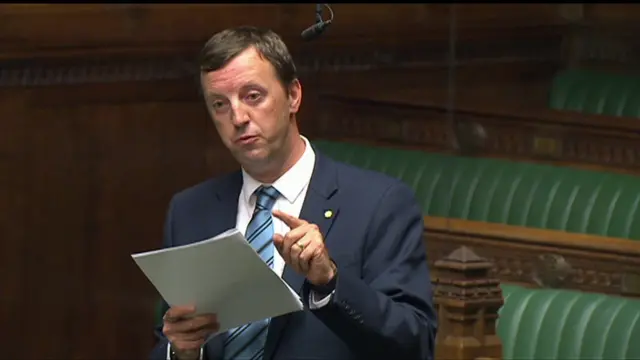 Image source, HoC
Image source, HoCPlaid Cymru MP Jonathan Edwards says "anything could happen over the next few months", but warns that future historians "will not be kind" when looking back on how politicians have handled Brexit.
"The current pathway to Brexit seems completely naive", he says, suggesting the government is throwing away the opportunity to secure the best trade deal the EU has ever agreed to.
He calls for the prime minister to "remove no deal from the political theatre" and says it has "failed miserably as a negotiating tactic and will fail to bribe this House into submission".
Legislating for the EU withdrawal agreement
 House of Commons
House of Commons
Parliament
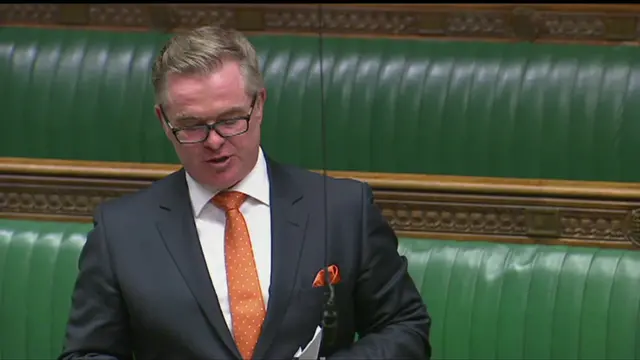 Image source, HoC
Image source, HoCConservative MP Colin Clark says the government have prepared for a good Brexit and have bent over backwards to work with the EU.
"We need an agreement that will lay to rest the divisions on both sides of this house."
He says it is still their firm view to reach an agreement on a good stable future agreement which must be positive and robust.
"We cannot afford a cliff edge no deal."
Mr Clark says we need to debate the merit of a hybrid deal and that he does not accept that there can be a no deal as there is sufficient time to negotiate a good deal that works for us.
He says the British people voted to leave the single market and the customs union in exchange for returning sovereignty and self government and a free trade agreement and a proven FTA would respect that.
"We can't revisit this, we have to get it right the first time."
Legislating for the EU withdrawal agreement debate
 House of Commons
House of Commons
Parliament
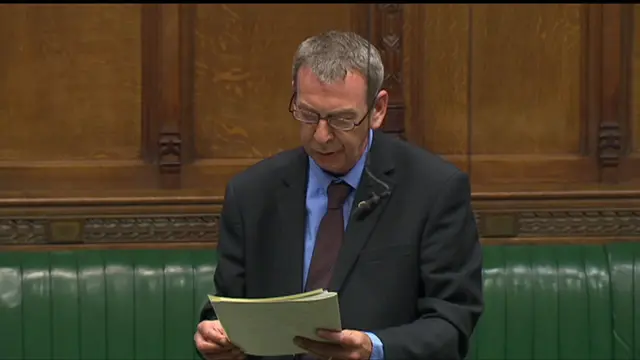 Image source, HoC
Image source, HoCLabour MP for Hartlepool Mike Hill says he voted to trigger Article 50 on behalf of his "tenacious and aspirational" constituents, who, despite benefiting from EU membership, had lost faith in Europe.
He said they understood it would take negotiations and time, but did not expect that "six months prior to leaving we are facing a hard Brexit".
He criticises the government's handling of expectations, "you fight for what is right, you don't promise jam tomorrow to those whose jobs and livelihoods depend on a well managed outcome."
Legislating for the EU withdrawal agreement
 House of Commons
House of Commons
Parliament
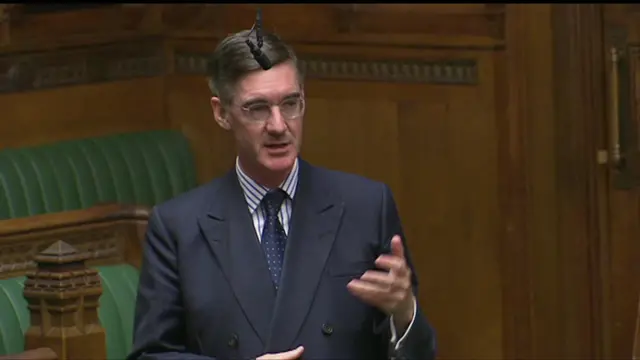 Image source, HoC
Image source, HoCConservative MP Jacob Rees-Mogg says those who came to Britain under treaties which were agreed, and are here legally and lawfully, should be protected post-Brexit.
"People who are here lawfully should be protected in every possible way as if they were British citizens. We should have a level of admiration for those who have come to improve their own standard of living, and we are not a nation of retrospective legislation."
He continues that whilst he is opposed to the bureaucracy of the EU, he greatly admires the individual states.
"You can have a great friend and not want them to rule your life."
Mr Rees-Mogg says having a period of 21 months where the UK's senior court is the European Court of Justice is a great mistake, and he will find this extremely hard to vote for.
He says that new laws made by the European Union during this period over which the UK has no say could do damage to our areas of interest.
Alongside the issues of immigration and law, Jacob Rees-Mogg says money is important in this withdrawal agreement.
"The £40bn we are talking about is not a legal obligation as when we leave the EU, the Treaty of Vienna is redundant. That money would be a charitable donation."
Legislating for the EU withdrawal agreement debate
 House of Commons
House of Commons
Parliament
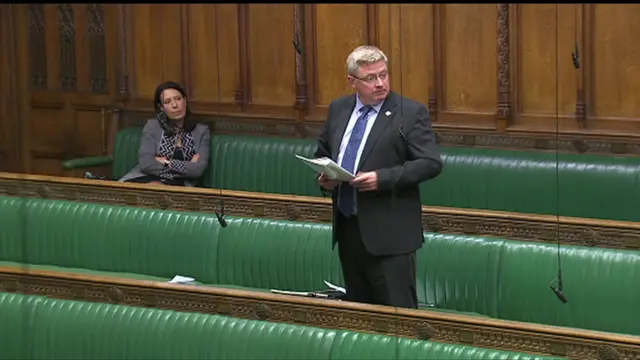 Image source, HoC
Image source, HoCLabour MP Martin Whitfield says the deal being put forward is "looking less like a deal for the country, and more like a deal for the Conservative party."
"The confidence of the British people has been undermined," he says.
He says it's vital a deal is reached where Britain remains an "open, outward looking and supportive partner" for the EU, and that it isn't one that damages young people.
"If the decision making damages our United Kingdom, our leaders will not be forgiven," he urges.
He warns that "our law, like our paper currency, only works because there is universal consensus to bind, follow and obey it". This is what is at risk over how Brexit is handled.
Legislating for the EU withdrawal agreement
 House of Commons
House of Commons
Parliament
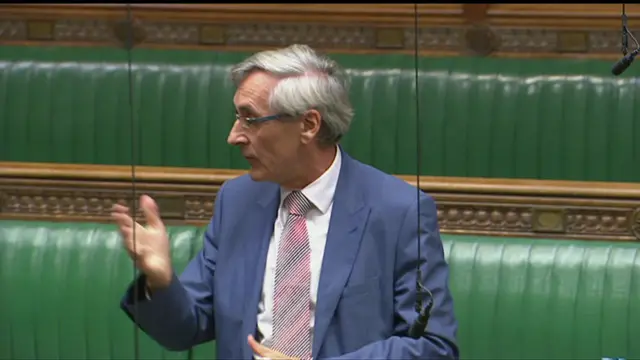 Image source, HoC
Image source, HoCConservative MP John Redwood says his worry with the EU withdrawal proposal is that there appears to be two treaty laws to "replace the one we are getting rid of".
"We are mighty suspicious of treaty law because the original treaty, the Treaty of Rome was masqueraded as a free trade agreement and completely changed our constitutional structure without the people ever having a proper vote on that process."
He says the government has work to do on persuading members that the two treaties are a good deal for the British people.
"The money is far too great, the transition delay is far too long and I'm extremely concerned that we give up one EU treaty only to sign up to another two, which look to me as if they'll have many of the same problems as the original."
Mr Redwood says if MPs get it wrong, the public can fire them, whereas the European Union often strongly and always seems to get it wrong and there's no one that can be directly or indirectly fired as the UK has no control.
Legislating for the EU withdrawal agreement
 House of Commons
House of Commons
Parliament
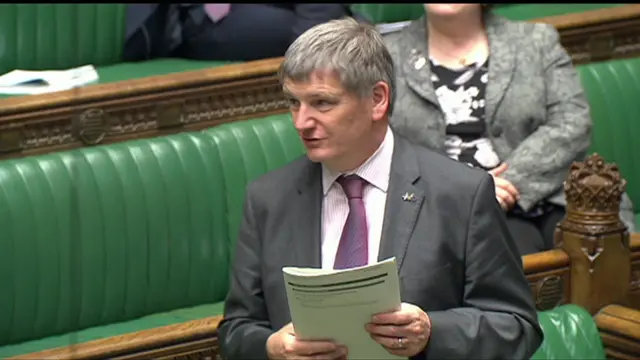 Image source, HoC
Image source, HoCThe SNP's Peter Grant, a spokesperson on the EU, says he doesn't understand how even the best drafters of legislation can be drafting anything when the government still haven't quite decided what they're legislating for.
"The first thing you ask someone when you're writing up a legal contract is what do you want it to say and what do you want it to do - we don't know the answer to that."
Mr Grant says an implementation period doesn't give us certainty, all it does it extend the period of uncertainty by a year or so.
"It's like you're heading to the edge of a cliff and maybe it's good if you can prolong the uncertainty as to just how high the cliff is until the last second, but it's the same result."
Peter Grant says "an implementation period that causes a cliff edge Brexit at the end of 2020 isn't really any better than a cliff edge Brexit at the end of March 2019".
Mr Grant asks the minister how she thinks the members should vote on a deal, whether they should vote for a proposal that will leave the customs union and the single market on a rotten deal, or for leaving the customs union and the single market on no deal at all.
He suggests that if the government are so confident a deal will be reached, there should be a third option of putting the deal to the people to let them decide and have the chance again to show what they really meant.
However, Mr Grant stresses that a concern he has with the growing calls for a 'people's vote' are that it would be as meaningless and flawed as the vote was in 2016.
Priorities for Network Rail
 Select Committee
Select Committee
Parliament
Committee chair Lilian Greenwood thanks Mr Haines for giving evidence.
She closes the session by telling him "you will receive no plaudits when things go well but certainly be in the firing line when things go wrong".
We'll be back tomorrow with more coverage from the select committee rooms.
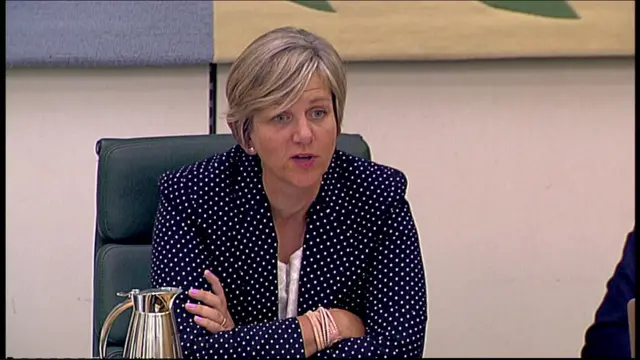 Image source, HoC
Image source, HoCLegislating for the EU withdrawal agreement
 House of Commons
House of Commons
Parliament
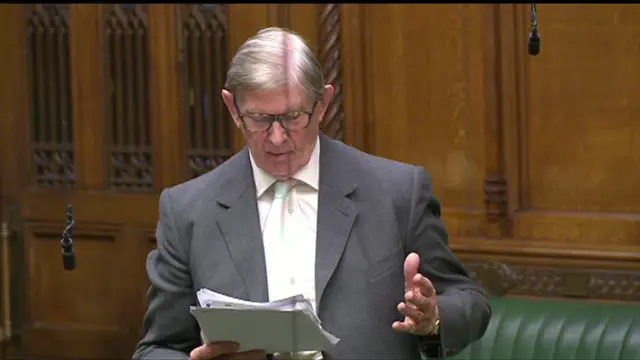 Image source, HoC
Image source, HoCChair of the European Scrutiny Committee, Sir Bill Cash, says: "I'm concerned about the view that the Chequers proposals will give us greater certainty, as that is simply not the case", he says.
He says there are specific examples where EU law will continue beyond the implementation period, for example with regard to pending cases, which is dangerous territory.
"This is not just weird, but thoroughly unacceptable."
Sir Bill Cash says the proposed Joint Committee means the decisions will be taken by the other member states and the UK will effectively have no real control over them whatsoever.
"This Joint Committee has not been agreed with us and the details of it are extremely obscure."
He says working closely with Parliament to agree on a scrutiny system is fundamental, as it sounds as if the UK is moving into a re-shackling of Parliament and businesses.
"It's crystal clear that we should be in charge of the making of our legislation on our own terms and not be supplicants to the European Union."
Legislating for the EU withdrawal agreement debate
 House of Commons
House of Commons
Parliament
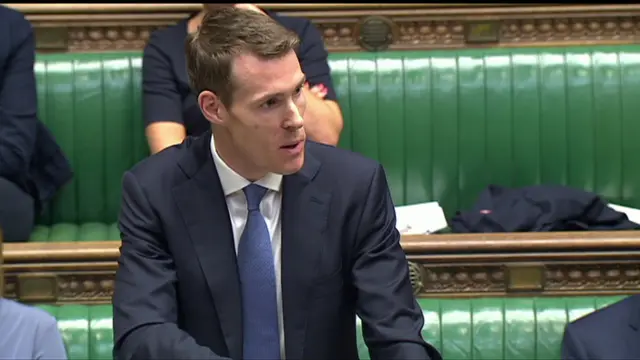 Image source, HoC
Image source, HoCShadow Brexit minister Matthew Pennycook says legislating for the EU Withdrawal Bill was the most rigorous process, and he expects legislating for the withdrawal agreement will be even more so.
He says the government's white paper suggests that much of the EU Withdrawal Act will be amended and will "strip it of any legal significance", despite going through so much parliamentary scrutiny.
Conservative MP Bill Cash intervenes to agree on the point.
Mr Pennycock repeatedly says that government has "chose on more than one occassion to prioritise political gimickry over common sense".
He turns to the issue of the Irish border, warning that if it "is not resolved there will not be a final deal to legislate for."
"The border is a deeply political problem. Not just a technical one."
He says the risk is growing, "it's imperative that progress is made and made quickly." He references comments by the Irish prime minister suggesting finding a solution would be much easier if there was some suggestion of what a future relationship "might actually look like".
"We urgently need a change of approach and pace from the government," he says, calling for them to turn focus away from political issues within their own party.
Priorities for Network Rail
 Select Committee
Select Committee
Parliament
Chair Lilian Greenwood asks Network Rail's CEO what improvements passengers will see on the railways over the next five years.
Mr Haines says two thirds of Britain's signalling system needs to be replaced in the next fifteen years.
The rail chief says that if a decision isn't made in the next five years, the rail sector risks "losing the opportunity" to reduce operating cost, increase capacity and reduce journey times for "possibly two generations".
PA parliamentary editor tweets
Allow X content?
This article contains content provided by X. We ask for your permission before anything is loaded, as they may be using cookies and other technologies. You may want to read X’s cookie policy, external and privacy policy, external before accepting. To view this content choose ‘accept and continue’.
BBC tweets
Allow X content?
This article contains content provided by X. We ask for your permission before anything is loaded, as they may be using cookies and other technologies. You may want to read X’s cookie policy, external and privacy policy, external before accepting. To view this content choose ‘accept and continue’.